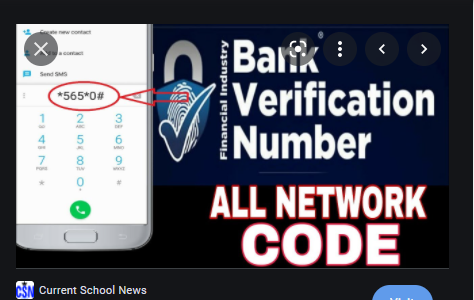BVN violators on watch list
By Jeph Ajobaju, Chief Copy Editor
Those who misuse their Bank Verification Numbers (BVNs) will no longer be able to open or operate a bank account, according to a new rule by the Central Bank of Nigeria (CBN) meant to ensure a safe and efficient financial system.
The CBN said its ‘Revised Regulatory Framework for Bank Verification Number (BVN) Operations and Watch-List’ for the banking industry will enhance the effectiveness of customer due diligence and Know Your Customer (KYC) processes.
CBN Payments System Management Director Musa Jimoh explained in the circular to banks that the watch-list is a database of customers identified by their BVNs who have been involved in confirmed cases of breaches.
Under the new framework, breaches could see an individual getting barred from entering a new relationship with any bank, per The Nation.
Prohibition from electronic channels
Where a financial institution chooses to continue an existing business relationship with holders of an account/wallets on the watch-list, the account holder shall be prohibited from all electronic channels such as but not limited to
- Automated Teller Machine
- Point of Sale
- Internet Banking
- Mobile Banking
- USSD including the issuance of third-party cheques
__________________________________________________________________
Related articles:
CBN to sanction BVN misusers on watch list
CBN discovers N56.83m counterfeit currency notes
__________________________________________________________________
All accounts/wallets must be linked to BVN
“The new framework further stipulates that a customer with watch-listed BVN shall not reference accounts, access or guarantee credit facilities, thus, breaches it continued on the customer’s part include – use of forged documents, forgery, compromise, complicity and connivance,” Musa said.
“Also listed as punishable breaches were: duplicate enrolment, use of fictitious information, receipts of proceeds of deception, deception, receipts of fraudulent proceeds and any infractions on Anti-Money Laundering/Combating the Financing of Terrorism (AML/CFT) laws, and dishonest acts.
“Others were non-cooperation with efforts (as stipulated in the Regulation on Instant Interbank Electronic Funds Transfer) to reverse wrong credit, erroneous, multiple or duplicated payments or credits; and any infringement of the Cybercrimes (Prohibition, Prevention, etc.) Act. 2015.
Also to be punished are those who misuse identity and financial information and indulge in identity theft and breach of confidentiality.
“Banks and other financial institutions involved in BVN operations were instructed by the CBN to ensure all operating accounts/wallets are linked with the signatories’ BVNs within 24 hours of availability.”
Negative impact on the economy
The circular instructed operators to enroll all mobile money wallets (except Tier 1) subscribers on the BVN database and link their wallets (except Tier 1) with their BVNs within 180 days of the issuance of this framework.
The CBN said it would continue to monitor industry developments and issue further guidance as may be appropriate in the nearest future.
It stressed that money laundering requires an underlying, primary profit-making crime (corruption, drug trafficking, market manipulation, fraud, tax evasion) and intent to conceal the proceeds of the crime or to further the criminal enterprise.
These activities, it added, generate financial flows that involve the diversion of resources from economically and socially-productive uses.
The diversions can have negative impacts on the financial sector and external stability of the economy, the circular said.












